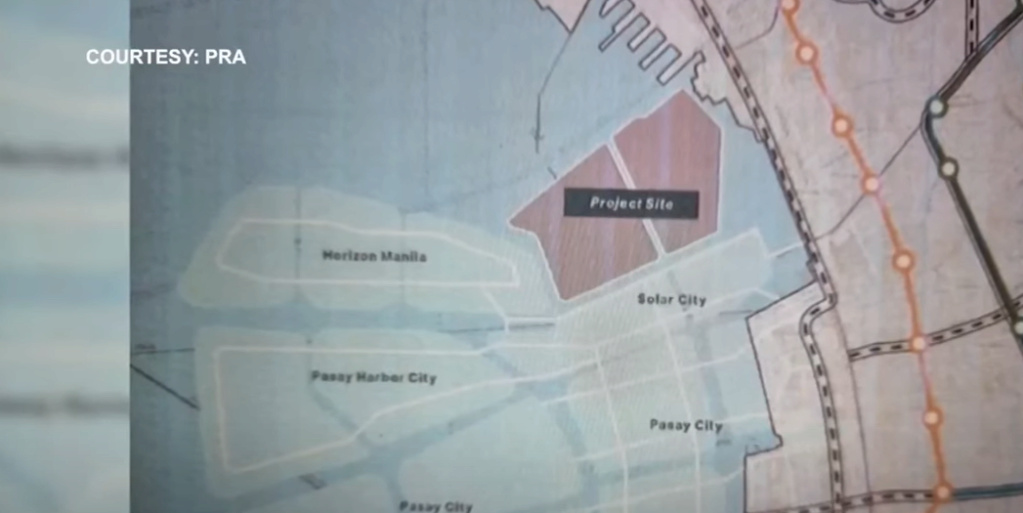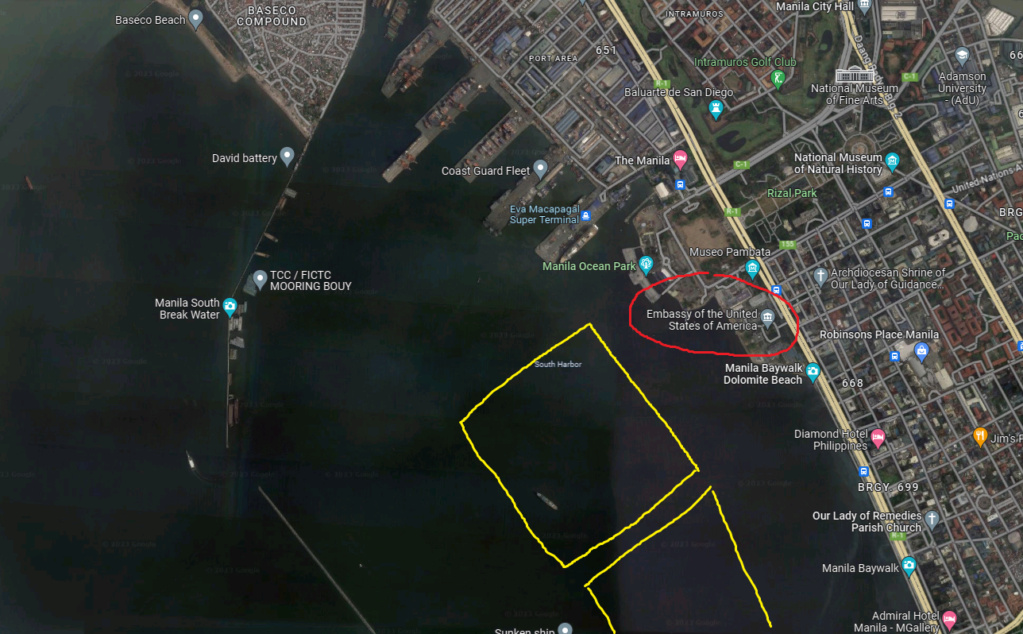You are using an out of date browser. It may not display this or other websites correctly.
You should upgrade or use an alternative browser.
You should upgrade or use an alternative browser.
Philippines thread: news only, no discussion
- Thread starter zgx09t
- Start date
-
- Tags
- philippines
Jura The idiot
General
here comes
Opinion
Scepticism rises in Philippines about Chinese projects and Duterte’s support of them
Opinion
Scepticism rises in Philippines about Chinese projects and Duterte’s support of them
- Concerns are growing, especially within the military, that large-scale Chinese investment is a Trojan horse
- Over the past year, several top Philippine officials have publicly complained about the backlog in promised Chinese projects
Jura The idiot
General
noted
U.S. Warns China Will Gain Edge if the Philippines Ends Visiting Forces Agreement
U.S. Warns China Will Gain Edge if the Philippines Ends Visiting Forces Agreement
The Philippines government has now formally begun the process of terminating the Visiting Forces Agreement with the United States, Philippines Foreign Secretary Teodoro Locsin confirmed on Twitter: the U.S. Embassy in Manila has received notice, and the termination will take effect 180 days later.
Philippine President Rodrigo Duterte on Jan. 23 threatened to abrogate the VFA as he expressed outrage over the U.S. decision to cancel the visa of his former police chief, Senator Ronald dela Rosa. Both Locsin and Philippines Defense Secretary Delfin Lorenzana pushed for a review of the VFA rather than a cancellation, warning of the long-term damage to the Philippines. But with Duterte’s decision to cancel, both must fall in line with the decision.
With just 180 days between the date of notification and the date of enactment, it is expected that there will be furious efforts by the U.S and within the Philippines government and military, who have been against the cancellation, to salvage the agreement. Some suspect that the move is really meant to enable the Philippines to extract concessions from the United States during that period, resulting in a continuation of the VFA if concessions are granted.
Secretary of Defense Mark Esper told reporters on Tuesday that the U.S. was still working through the implications of the notification.
“I do think it would be a move in the wrong direction as we both bilaterally with the Philippines and collectively with a number of other partners and allies in the region are trying to say to the Chinese, ‘You must obey the international rules of order. You must obey, you know, abide by international norms’,” Esper said on Feb. 11.
“As we try and bolster our presence and compete with [China] in this era of great power competition, I think it’s a move in the wrong direction for the longstanding relationship we’ve had with the Philippines for their strategic location, the ties between our peoples, our countries.”
The VFA, signed in 1998, outlines the conditions for U.S. military and Coast Guard personnel and equipment entering the Philippines. The agreement also sets the jurisdiction and procedures in regard to any U.S. military and civilian personnel committing a crime in the Philippines, as well as visa and passport requirements.
The termination of the VFA now puts at risks a number of U.S military activities carried out with the Philippines, such as port calls, subject matter expert engagement and exchanges, the Balikitan and CARAT series of exercises, and the presence of U.S military and civilian personnel providing training and non-combat assistance. That includes U.S. contractor-provided intelligence, surveillance and reconnaissance (ISR) aircraft to Philippines military forces engaged in counter-terrorism and counter-insurgency operations, and a host of other bilateral exercises.
While lays out access to specific locations for specified activities such as exercises and training events, it does not cover the status of U.S military and civilian personnel. Without the VFA, it is unlikely that the U.S would want to engage in activities in the Philippines without the protection for its personnel as covered by the VFA agreement.
The EDCA allows the U.S to preposition material and equipment, except for nuclear weapons, in the Philippines. But such unimpeded access now becomes problematic without the VFA, as U.S personnel could be denied entry into the Philippines at their entry point.
Earlier this week, a senior State Department official warned the absence of the VFA between the United States and the Philippines would put at risk all bilateral exercises and engagements held in the Philippines.
Speaking in a media conference call on Feb. 10, U.S. Assistant Secretary of State for Political-Military Affairs R. Clarke Cooper said the United States annually conducts around 300 exercises and engagements bilaterally with the Philippines and that it was necessary to have a VFA to ensure that these activities continue unimpeded.
“Absent that agreement, we do put at risk those activities that the different defenses, the different services in the Philippines very much value,” he said.
Cooper, though, was optimistic that the VFA would not be abrogated by the Philippines, saying “from the inter-ministerial standpoint in Manila, there’s a recognized, broad value of not only maintaining our Enhanced Defense Cooperation Agreement that will beget further procurements and interoperability between the U.S.-Philippine alliance, but the very practical application of a Visiting Forces Agreement that enables these activities like port calls, like engagements, like exercises.” He added that he imagined anyone in a ministerial or operational service capacity in the Philippines would not want to see those activities reduced or eliminated.
Cooper said that the VFA will be discussed at the planned U.S.–Philippines Strategic Dialogue tentatively scheduled for March this year. He said the VFA issue would be part of a broader discussion at the dialogue in which the commitments between the two countries such as the Enhanced Defense Cooperation Agreement, potential procurements and foreign military sales would be discussed. Ongoing talks will be taking place leading up to that event, he noted.
“There’s ongoing communication, and because of outstanding shared interests when it comes to freedom of navigation, freedom of movement, joint security interests, future procurements, this is part of the broader dialogue as to why there remains value in the Visiting Forces Agreement,” Cooper said.
Jura The idiot
General
What a huge embarrassment. the Philippines seems to be the only country in the world where armed Islamic extremists are allowed to claim their own territories and even harass and disarm members of the country's armed forces. Such incidents don't seem to concern the so-called "allies" of the Philippines like the US who always boast about its readiness to defend the country's territorial integrity against China in the South China Sea. 
Lol and the Philippine keyboard commandos and so-called nationalists want to fight the Chinese? F..ng living in lala land.
Equation
Lieutenant General
You gotta be kidding me..."MILF"?What a huge embarrassment. the Philippines seems to be the only country in the world where armed Islamic extremists are allowed to claim their own territories and even harass and disarm members of the country's armed forces. Such incidents don't seem to concern the so-called "allies" of the Philippines like the US who always boast about its readiness to defend the country's territorial integrity against China in the South China Sea.
So a few days ago, the US embassy in Manila started whining about reclamation projects in Manila Bay, the US embassy spokesperson has insisted that one of the companies involved in the ongoing reclamation project was a so called "Blacklisted" Chinese firm
In another occasion, the US Embassy talked about how the reclamation project is causing "environmental damage" to the surrounding areas.
However, the main reason for their complain is none of the circumstances mentioned above
As can be clearly seen in the map below, the reclamation projects will be blocking the embassy's open access to the bay


The US embassy seems to feel that they are entitled to have the entire bay area for themselves and has decided to make a lot of fuss about the reclamation project by throwing random accusations ranging from mythical "blacklisted Chinese companies" to fake environmental concerns.
In another occasion, the US Embassy talked about how the reclamation project is causing "environmental damage" to the surrounding areas.
However, the main reason for their complain is none of the circumstances mentioned above
As can be clearly seen in the map below, the reclamation projects will be blocking the embassy's open access to the bay


The US embassy seems to feel that they are entitled to have the entire bay area for themselves and has decided to make a lot of fuss about the reclamation project by throwing random accusations ranging from mythical "blacklisted Chinese companies" to fake environmental concerns.
To be fair bro, those reclamation will further exacerbate the already worsening flood problem in the city. Where will the excess water flow if you block it. Duterte withhold those permit (withheld the approval of DENR ECC, ENVIRONMENTAL COMPLIANCE CERTIFICATE) knowing the ecological problem BUT the local authorities approved it anyway (local gov't code) as a mean to increase their tax base. Manila need land to expand because they have many public real estate under heritage protection.So a few days ago, the US embassy in Manila started whining about reclamation projects in Manila Bay, the US embassy spokesperson has insisted that one of the companies involved in the ongoing reclamation project was a so called "Blacklisted" Chinese firm
In another occasion, the US Embassy talked about how the reclamation project is causing "environmental damage" to the surrounding areas.
However, the main reason for their complain is none of the circumstances mentioned above
As can be clearly seen in the map below, the reclamation projects will be blocking the embassy's open access to the bay


The US embassy seems to feel that they are entitled to have the entire bay area for themselves and has decided to make a lot of fuss about the reclamation project by throwing random accusations ranging from mythical "blacklisted Chinese companies" to fake environmental concerns.
I'm against reclamation, it will ruin one of Manila main attraction the sunset boulevard overlooking the bay which is one of our most iconic scenery, the former mayor of manila Isko Moreno is corrupt to the core, selling public land to benefit himself, we called him BOY BENTA, boy seller...lol he is set for life having received huge money from the American and the oligarchy elite who funded his political campaign and also from selling of public land.
